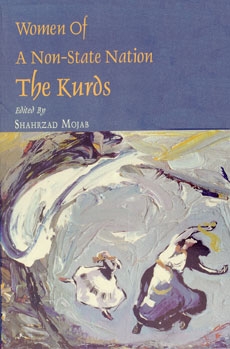Women of A Non-State Nation Kurds
Edited by Shahrzad Mojab
Western observers and Kurdish nationalists have ro¬manticized the women of Kurdistan by claiming that hey enjoy more freedom than their Arab, Persian and Turkish sisters. Kurdish women are, in these nar¬ratives, mostly unveiled; they freely associate with men in work, dance, and war, and songe appear as rulers of tribes and territories. This book challenges such daims to the uniqueness of the status of Kurdish women by offering a complex picture of their oppression and resistance.
The Kurds are the fourth largest "ethnie people" of the Middle East, outnum-bered only by Arabs, Persians and Turks. In the wake of World War I, they were forcibly divided among the neighboring states of Iraq, Syria, Turkey and Iran. Known as the world's largest non-state nation, Kurds are also dispersed in diasporic communities throughout Asia, Europe and North America.
By the turn of the century, Kurdish women had entered male-dom inated do- mains such as parliaments (Iraq, Turkey, Europe), guerrilla armies (Iran and Tur¬key), higher education, mass media, arts, sciences, administration. and law. They were, at the same time, subjected to extensive violence by both the nation-states that rule over them and the patriarchal regime of their own non-state nation.
Resisting the national chauvinism of the ruling nations as well as the male chauvinism of their own nation. Kurdish women's movements are sites of conflict and coexistence between national ism and feminism, declining feudalism-tribalism and emerging capitalism, and national and class struggles.
Kurdish women are usually ignored in women's studies both in the Middle East and the West. There is a serious dearth of research and resources in English and other languages. The contributors to this volume, the first anthology of its kind. examine aspects of Kurdish women's lives in politics, history, culture, religion, medicine, and language. Songe of the topics covered here have never appeared in previous studies: gender and self-determination, women and Sufism, language and patriarchy, and women in traditional medicine.
This volume will be useful for the general readership interested in the study of Kurdish women as well as students of women's studies, feminist theory, Middle Eastern studies, gender and language, nationalism, theories of state, women's rights, and gender and culture. | 